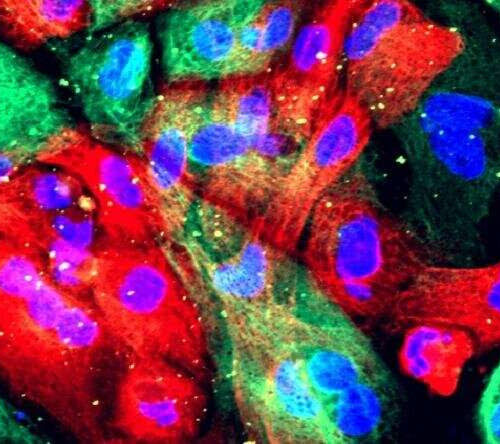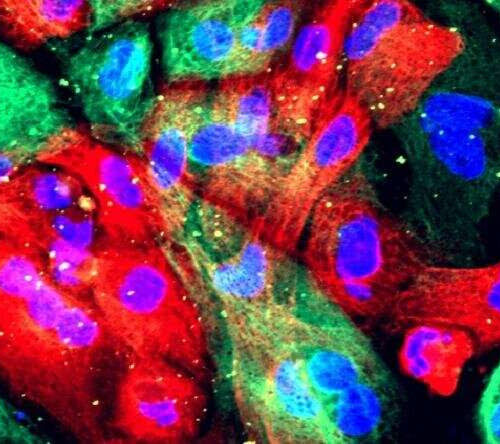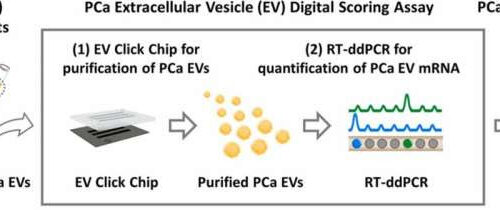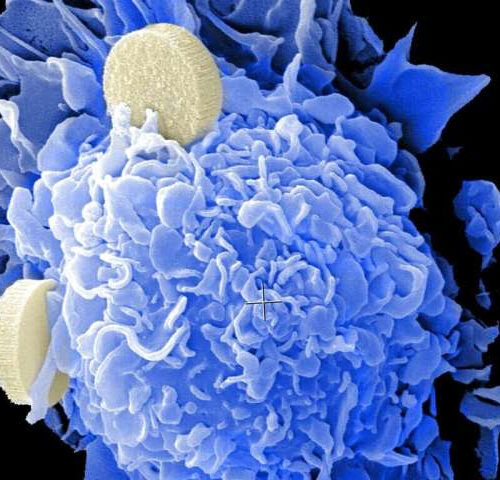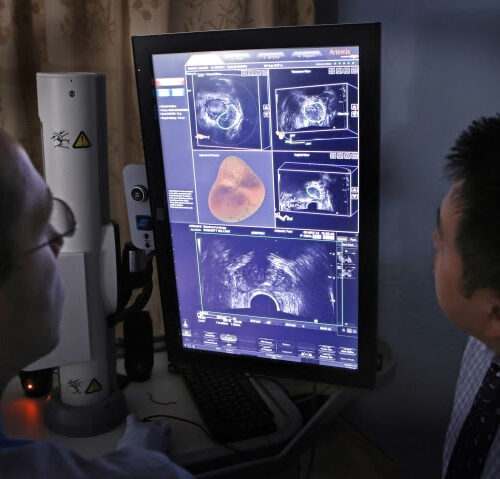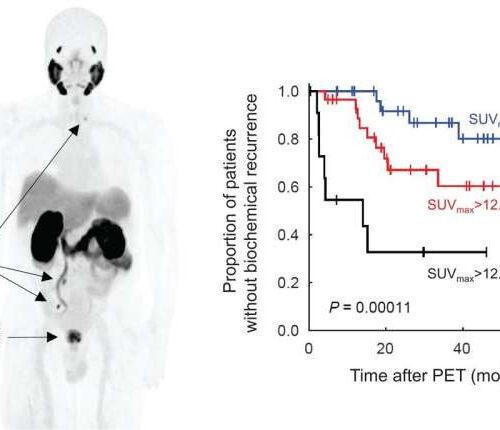by Elsevier Credit: Pixabay/CC0 Public Domain Predicting the course of prostate cancer is challenging because only a fraction of prostate cancer patients experience recurrence after radical prostatectomy or radiation therapy. Yet, prostate cancer remains one of the most fatal malignancies in men in the United States. Now, investigators have developed a machine learning model that...
Tag: <span>Prostate cancer</span>
The new prostate cancer blood test with 94 per cent accuracy
by University of East Anglia Prostate cancer cells. Credit: NIH Image Gallery Researchers at the University of East Anglia have helped develop a new blood test to detect prostate cancer with greater accuracy than current methods. New research shows that the Prostate Screening EpiSwitch (PSE) blood test is 94 percent accurate—beating the currently used prostate-specific...
New treatment approach for prostate cancer could stop resistance in its tracks
by Sanford Burnham Prebys Medical Discovery Institute Prostate cancer cells. Credit: NIH Image Gallery For the first time, researchers have discovered that prostate cancer can be killed by targeting a single enzyme, called PI5P4Kα. The findings, published recently in Science Advances, could help address the growing threat of treatment resistance in prostate cancer and could also lead to...
Noninvasive test can detect even trace elements of prostate cancer
by Cedars-Sinai Medical Center Graphical abstract. Credit: Nano Today (2023). DOI: 10.1016/j.nantod.2022.101746 Cedars-Sinai Cancer investigators have developed a new nanotechnology-based test that can detect and profile prostate cancers—even in microscopic amounts. Their work, published in the journal Nano Today, suggests that this “liquid biopsy” test could spare many patients unnecessary treatment-related side effects, directing them instead to effective therapies...
Neuronal molecule makes prostate cancer more aggressive
by Thomas Jefferson University Credit: Unsplash/CC0 Public Domain Prostate cancer is the second most common cancer and the second leading cause of cancer death among American men. Now, researchers have discovered key molecular players that drive prostate cancer to progress into a highly aggressive form of the disease called neuroendocrine prostate cancer that currently has no effective...
National prostate cancer trial currently testing therapy based on molecular discovery
by Cleveland Clinic Credit: Journal of Clinical Investigation (2023). DOI: 10.1172/JCI163498 A new prostate cancer therapy in clinical trials could treat patients resistant to treatment through targeting the disease on a molecular level, based on new Cleveland Clinic research. Prostate cancer affects one out of every nine men. Most patients respond to chemical or surgical castration, which stops the body...
More men diagnosed with advanced prostate cancer as PSA screening declines
After two decades of decline, cases of prostate cancer rose by 3% per year from 2014 to 2019, a new report from the American Cancer Society has found. Jan. 12, 2023, 2:42 PM MSTBy Linda Carroll More men are being diagnosed with advanced prostate cancer that is less likely to respond to treatments, a new study from...
New hormonal agent may slow progression of early-stage prostate cancer during active surveillance
WOLTERS KLUWER HEALTH January 10, 2023 – For men with early-stage prostate cancer being managed by active surveillance, adding the hormonal agent apalutamide may lower the rate of positive biopsies during follow-up, suggests a preliminary clinical trial in The Journal of Urology®, an Official Journal of the American Urological Association (AUA). The journal is published in the Lippincott portfolio by Wolters...
PET/MRI accurately predicts risk of prostate cancer recurrence after prostatectomy
by Society of Nuclear Medicine and Molecular Imaging Left: Maximum intensity projection of 68Ga-PSMA PET in a patient with newly diagnosed prostate cancer shows intense uptake in the primary prostate lesion and focal uptake in multiple lymph nodes consistent with metastatic disease. Right: Kaplan–Meier curves show that high uptake and presence of metastatic disease on PET are...
Researchers map activity of inherited gene variants linked to prostate cancer
by UT Southwestern Medical Center Credit: Pixabay/CC0 Public Domain UT Southwestern researchers have identified the molecular function of 87 inherited genetic variants that affect the risk of prostate cancer, and the majority appear to control the activity of genes located far away from the risk variants themselves. The findings, published in Cancer Discovery, could lead to better ways...


